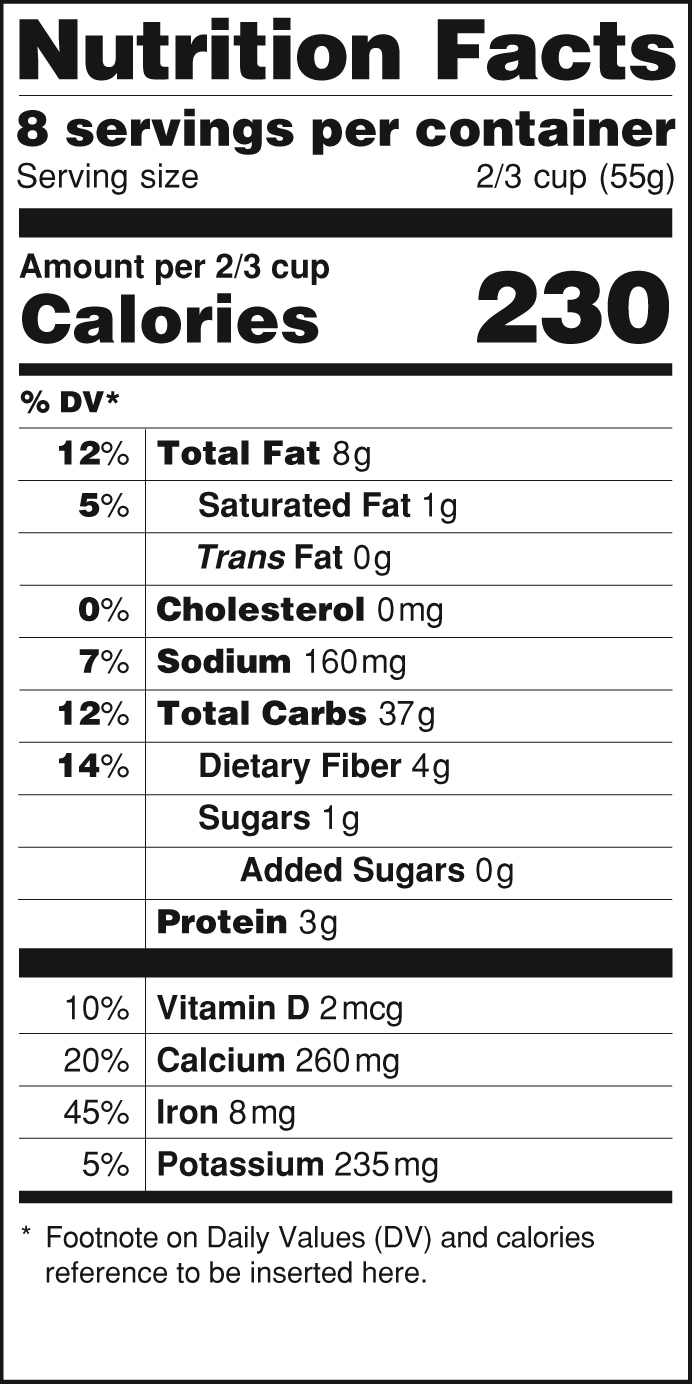Should ‘Added Sugars’ Come to Food Labels?

Should the FDA mandate the addition of “added sugars” to food labels? Or will it further confuse already confused consumers?
How often do you flip over a food package and read its nutrition facts? If you’re a food writer like me, you probably do it every single time—even on items you buy regularly—taking hours to shop for items most people spend mere minutes on. You never know when a brand is going to decide to change its ingredients, right? And sometimes I find I don’t remember what the ingredients are in some of the foods I purchase and like the reminder, especially when it comes to added sugars.
Now, the FDA is considering adding a section to the nutrition facts panel for added sugars (you know, that tiny little black and white box on the side or back of the product packaging that you have to twirl past all the pretty colors and images to get to). Current labels show sugars as a lump fact and total carbohydrates, which usually also includes fiber. It’s boring stuff unless you’re someone who gets pleasure out of serving sizes per container and “additional nutrients.”
But for most people, it’s the front of packaging that does the selling: the delicious flavor names, fiber or whole grain claims, the USDA organic logo, the word “natural,” and countless other words, images and even color schemes designed to lure us into taking that product off the shelf and placing it ever so delicately into our carts.
Sugar now though, is a serious concern. Former New York City Mayor Michael Bloomberg tried passing a ban on some soda sizes in efforts to stamp out the city’s growing obesity epidemic. Schools have phased out soft drinks and junk food from vending machines and cafeterias, and the Navajo Nation just passed the nation’s first sin tax on junk food, also in an effort to curb obesity and type 2 diabetes.
Behind the FDA’s push to label added sugars is hope that consumers will begin to understand the differences between sugars that are naturally occurring—say like in a fruit juice—and those that are added, like to a yogurt, a soft drink or cereal.

According to the FDA’s website, “Americans on average eat 16% of their total calories from added sugars, the major sources being soda, energy and sports drinks, grain based desserts, sugar-sweetened fruit drinks, dairy-based desserts and candy.” And the new delineation, the agency suggests, takes into account “new data and information, including U.S. consensus reports and recommendations, a citizen’s petition, and public comments,” on added sugars in food.
The label change has spurred controversy—mainly conservative vitriol about the government digging its nose into our dinner. But some of the criticism is warranted. After all, a food might not contain any added sugars—think fruit juice or preserves—but that doesn’t make it incredibly healthy, either. In fact, some research is now suggesting fruit juice may be just as harmful as sodas. Without fiber, which is removed from fruit when it’s juiced, there can be as many—or more—sugars present as in a similar serving size of soda. So that apple juice you’re giving your child instead of soda? Not that different.
Another criticism over the proposed label is grains that have been highly processed, such as white flour, can have similar effects on the body’s blood sugar level as when exposed to added sugar. But refined grains would also not be noted on the added sugars label.
Critics suggest the current total sugars line on the nutrition facts label is enough to help consumers steer clear of overly-sweetened foods, that “added sugars” would only confuse them. But it seems most consumers are already confused by food labels. There are scores of class-action lawsuits against major food manufacturers over misleading health claims on labels.
If manufacturers were forced to admit the amount of added sugars in a product, perhaps they’d start adding less of them. Maybe refined grains and juice products would skirt the label change, but does that mean we shouldn’t do our best to help people understand what they’re eating? And when so many of our health issues can be attributed to excessive “added” sugars, what’s wrong with finally calling them out?
Find Jill on Twitter and Instagram
Related on Organic Authority
‘Diet’ Claim on Diet Sodas is ‘Deceptive, False and Misleading,’ Consumer Group Says
Coca-Cola Needs You to Believe That Soda is a ‘Healthy’ Snack
Sugar Addiction: How Much Is Too Much?
Sugar cereal image via Shutterstock

